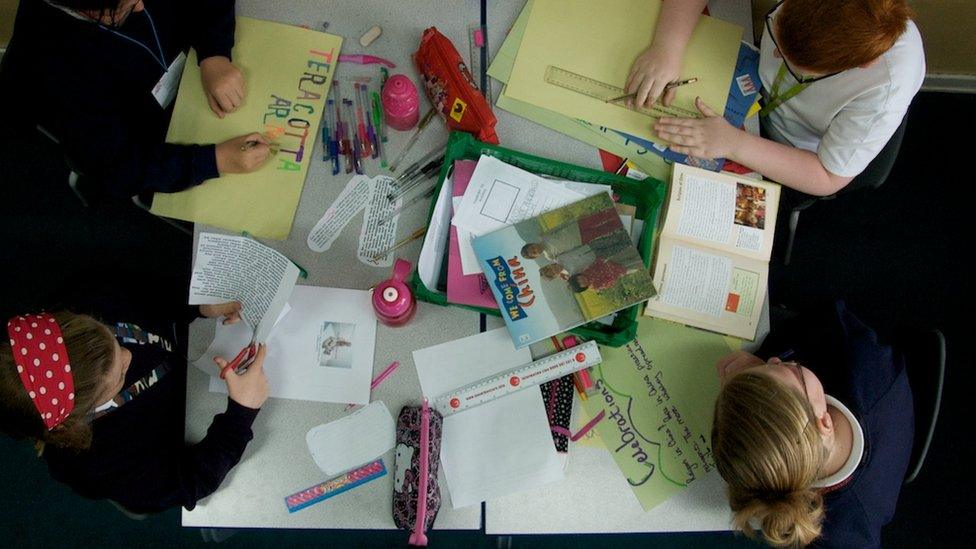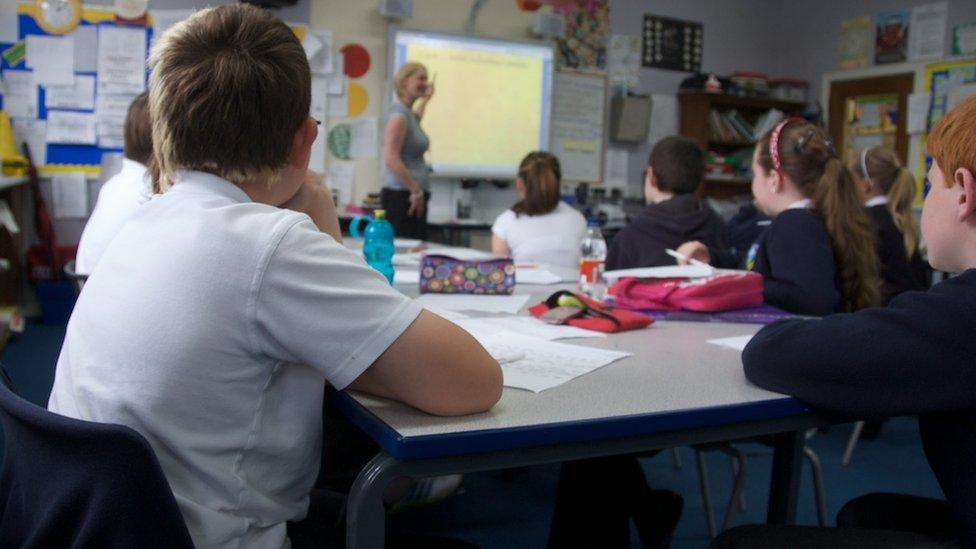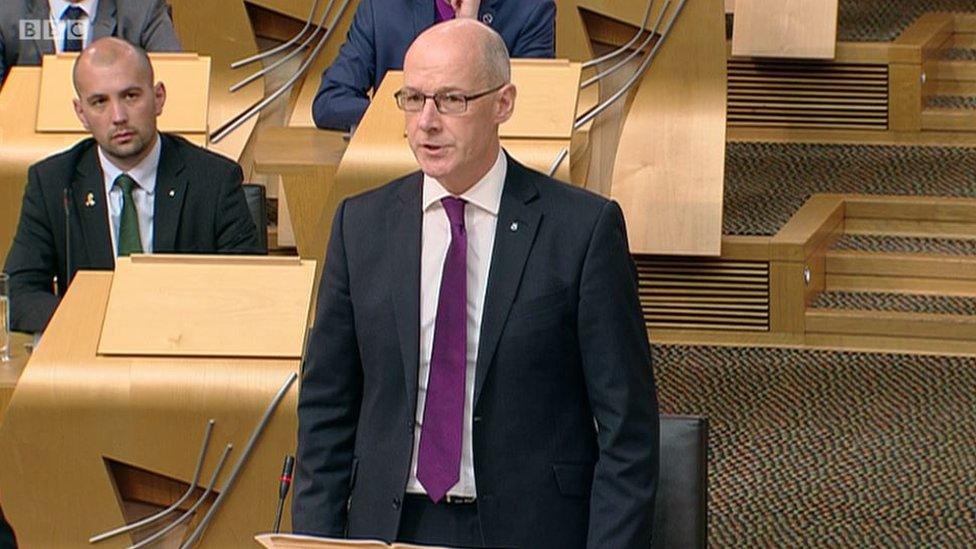Cosla: Councils 'should resist education changes'
- Published

The Scottish government wants to devolve more power and responsibility to head teachers
One of the most senior figures in Scottish local government is vowing to resist any moves to centralise control of education.
David O'Neill, president of local authority body Cosla, said poverty was the main barrier to raising attainment.
Some councillors fear the government plans to cut the role of councils in schools.
The Scottish government said making teachers and parents key decision-makers was "decentralising" power.
A spokesman added: "We are doing this because we believe that decisions about children's learning and school life should be taken at school level, supported by parents and the local community.
"This is a vision of empowerment and devolution and our reforms will be based on evidence of what works."
Education Secretary John Swinney announced moves last month to give more power to head teachers and create regional education boards.
The details of who will have what powers and responsibilities have still to be decided, although there will be a presumption to devolve as much power to individual schools as possible.
The argument is that head teachers are best placed to decide on what schemes to raise attainment are most suited to their needs.
'Enemy' of efficiency
However, some councillors fear they will be squeezed out - with schools formally gaining some powers and the new regional boards, which will operate across council areas, absorbing others.
Mr O'Neill will tell delegates at Cosla's conference: "There seems to be in Scotland a national view from both government and parliament of a fall-back position that when money is tight or when we wish to direct services to be effective and efficient, centralisation is the only answer.
"And we cannot allow that to happen in education. I resist making the political point that fire nor police have hardly been a roaring success.
"Centralisation is the enemy of everything we stand for in local government. It does not lead to efficiency and effectiveness. It leads to increased cost, inflexibility, an inability to respond to local requirements and lesser outcomes for communities."

He will also say the main problem raising attainment is poverty - not teachers, the education system or local government.
The background to Mr O'Neill's view is a report for Cosla two years ago that spoke of a 50-year trend towards centralisation in Scotland.
Councils are currently having to argue the case for the powers and responsibilities over schools they need to retain.
One argument is that tackling the impact of poverty on children requires a holistic approach that also involves other local services, including social work.
The state schools system is, in many respects, a national service that councils are entrusted to provide.
Councils employ teachers, take responsibility for school buildings and set budgets. However, they operate within a national framework and agreements.
There have been tensions over the years when individual councils and the government disagree - for instance over school closures, teacher numbers or moves to prioritise cutting class sizes in the early years of primary school.

Education Secretary John Swinney announced moves to give schools more power in September
The Scottish government says it wants to give as much power as possible to individual schools and head teachers.
One early move is to give £100m from changes to the council tax next year straight to head teachers - this is also controversial with councils as the money could, effectively, go into a national pot first rather than be spent within the area where the money was raised.
Ministers argue it is placing the raising of attainment in schools at the heart of the government's programme - a top priority is to close the gap in performance between children from relatively rich and poor backgrounds.
The new regional education boards will be designed to support schools and help ones in different council areas work together more effectively.
The government has stressed councils will retain democratic accountability for schools and said schools will not simply be able to opt out of local authority control. There is also no question of Scottish schools being able to chose their pupils on the basis of academic ability.
Scotland's largest teachers' union, the EIS, has previously warned that it did not want to see education caught up in a turf war between different tiers of government.
- Published13 September 2016
